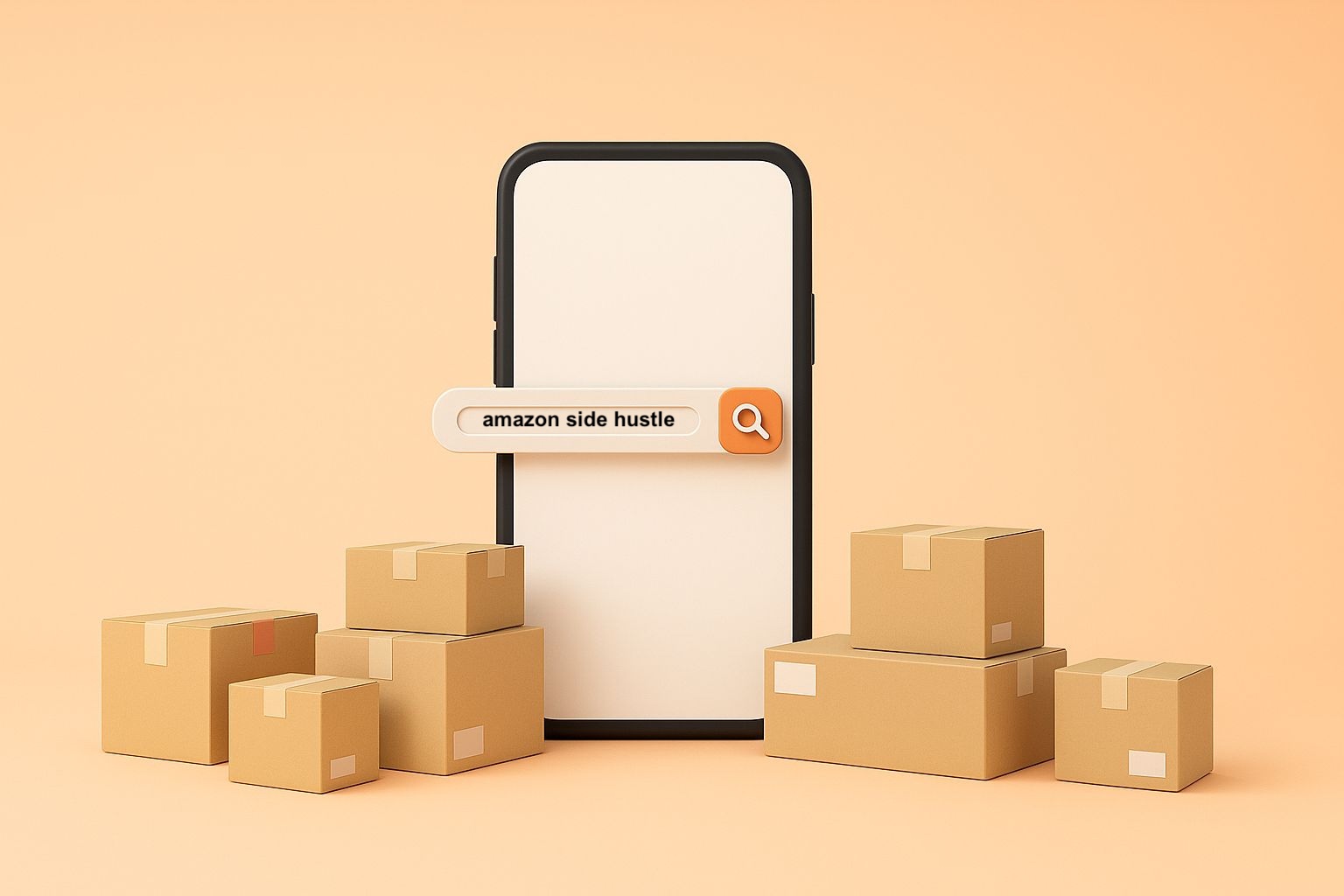Amazon Seller Competitor Analysis – Track, Analyze, Outsell

Selling on Amazon can feel like a never-ending race. You’ve got great products but sales aren’t where they should be. Why? Often it comes down to one simple thing: pricing.
In a market as dynamic as Amazon, competitor analysis starts – and often ends – with price. If you’re not tracking what your competitors are doing, chances are they’re already ahead of you.
Why Competitor Analysis on Amazon Starts with Price
Price as a Ranking Factor: How Amazon’s Algorithm Treats Price
Amazon, being its customer- but also profit-oriented self, wants customers to buy – and it wants customers to buy fast. So it promotes listings that offer the best value. While value doesn’t always mean “cheapest,” price is a huge part of the equation. Competitive pricing can help your product rank higher and show up more in search results.
Without real-time pricing insights, you’re flying blind – especially when competitors update prices daily or hourly.
Why Small Price Changes Can Have Big Impact on Buy Box Wins and Conversions
A $0.10 difference can change who wins the Buy Box. If a competitor lowers their price and you don’t notice, you could lose that top spot – and your conversion rate will take a hit. On the other hand, excellent account performance in combination with a repricing tool can put you in a position to win the Buy Box even with higher product prices.
Read more about the Amazon Buy Box in this article.
How Pricing Reveals Your Competitor’s Business Strategy
Tracking pricing over time can show you more than just numbers. Are they testing a new price point? Clearing inventory? Launching a promotion? Their pricing tells a story that you can listen and respond to.
The 3 Layers of Price-Centric Competitor Analysis
Layer 1: Daily Price Monitoring – Stay reactive
Your competitors don’t sleep. Their prices change often and if you’re not checking daily, you’re missing out. Monitoring their pricing helps you stay in the game.
Layer 2: Historical Price Trends – Spot patterns
Looking back helps you stay ahead. Track how competitor prices on Amazon rise and fall across seasons, promotions and product life cycles. Trends = insights.
Layer 3: Strategic Pricing Moves – Predict future behavior
Your competitor dropped their price by 15% last weekend? They’ll probably do it again. Modern Amazon price tracking tools can alert you when a competitor drops prices on key ASINs, so you can react before it affects your visibility.
How to Identify and Prioritize Competitors to Track
Using shared keywords and categories to find true competitors. Just because someone sells something similar doesn’t mean they’re your direct competitor. They might sell to a different audience, in a completely different area. Look for sellers who show up on the same keywords or in the same categories as you. Also consider who competes with you on price and positioning – and pay attention to who your customers are comparing you to in reviews or related product sections. Getting this right is a must for anyone serious about Amazon competitor analysis and smart Amazon seller market research.
Filtering Competitors by Pricing Proximity: Who’s Undercutting You?
Just because someone sells something similar doesn’t mean they’re your direct competitor. Keep an eye on sellers whose prices are just below yours – they’re your real threat. These are the ones that can steal the Buy Box from you with minimal effort.
When to Monitor Low-Cost vs. Premium-Priced Competitors
Are you targeting budget-conscious shoppers or premium buyers? Track the competitors that are playing in your space – not just the cheapest sellers.
Amazon Competitor Pricing Analysis Framework
Step 1: Identify Competitor ASINs and Price Points
List the top products competing with yours. Note their ASINs, current prices and shipping options.
Step 2: Track Real-Time Pricing Changes
Use alerts or a tool to get notified when competitors change prices.
Step 3: Analyze Price in Context with BSR and Review Count
A cheaper price doesn’t always mean better sales. Look at how price affects rank and social proof.
Step 4: Monitor Discounts, Coupons and Lightning Deals
Temporary promotions can reduce your traffic without you even noticing – so be sure to account for them in your pricing strategy.
Step 5: Compare Your Pricing Strategy Side-by-Side
Map out your pricing next to your top 3 competitors. Are you higher, lower or aligned?
Step 6: Adjust Your Price Intelligently – not Reactively
Don’t just lower your price to keep up. Adjust with purpose – based on strategy not panic.
A competitor price tracking tool helps automate this entire process and alerts you when key pricing thresholds are crossed.

How Pricing Intelligence Leads to Better Decisions
Protecting Your Margins While Staying Competitive
Chasing the lowest price will eat your profits. Use pricing data and Amazon competitor analysis to stay competitive without racing to the bottom.
Timing Your Promotions Based on Competitor Behavior
Running a discount when no one else is? That’s a win. Going head-to-head during a price war? Maybe not. Use timing to your advantage.
Using Price History to Plan Product Launches
Launching a new item? Price history shows you the pricing sweet spots you need to know if you want to grow – what customers are used to paying and when prices spike.
Want to find out more about pricing? Read this article on Amazon Pricing Strategy Mistakes that many sellers make, but could easily avoid.
Software Spotlight: From Seller to Bestseller
Manual Tracking vs. Automation: What You’re Missing
Spreadsheets are great – said no one ever. Especially when prices change every hour. Automation means no more guesswork, no more missed opportunities.
What to Look for in an Amazon Competitor Research Tool
Choose a tool that enables full Amazon marketplace analysis, not just pricing data. These kinds of tools help you read the market by tracking key stats and changes that matter. That way, you can spot patterns that influence pricing behavior and time your strategy more effectively.
Look for features like:
How SELLERLOGIC Helps you Stay Competitive 24/7
So that you don’t have to, the SELLERLOGIC Repricer monitors your competitors all day, every day, non-stop. Not only does it track prices, it also reacts to changes based on your rules, so you win the Buy Box more often without losing margins.
Wrapping Up
On Amazon, being competitive means being alert – especially when it comes to pricing. In a fast-paced market like Amazon, a price monitoring tool isn’t optional, it’s necessary. Price isn’t the only factor that matters, but it’s a big one for visibility, conversions and margins.
Here’s what a fact-based Amazon competitor analysis gets you:
Take the guesswork out of being competitive – start tracking prices today with SELLERLOGIC.
FAQs
Amazon competitor analysis is the key element when we want to stay ahead and when we’re watching competitors’ prices to win the Buy Box and get more sales for us.
You can use tools like SELLERLOGIC to monitor price changes and get alerts, because let’s be honest, who has time to constantly be checking their laptop?
Adjusting your price with Amazon competitor analysis makes it easier to win the Buy Box and get more sales. It’s all about working smarter, not harder, right?
Remember to check your competitors’ prices on a daily basis. Prices change pretty quickly on Amazon, and keeping up helps you stay in the game.
Be on the lookout for tools that track prices in real-time – they will be incredibly useful when it comes to Buy Box insights and setting up alerts to keep you updated.






